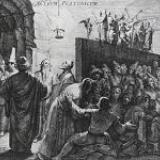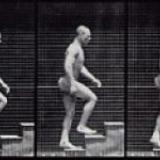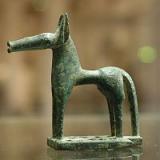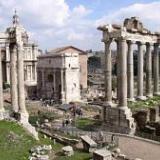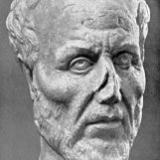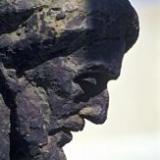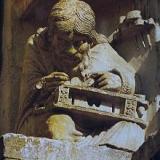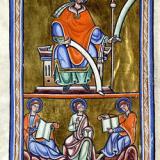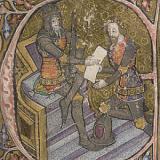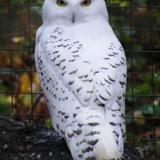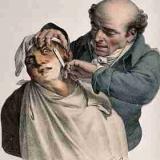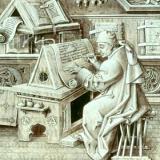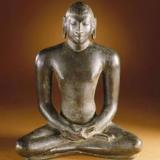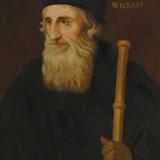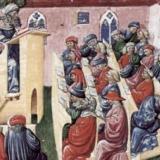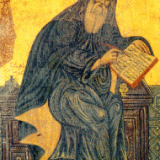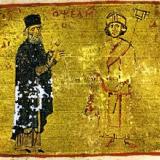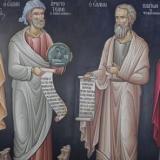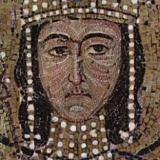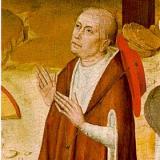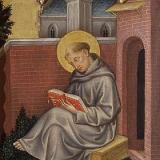Universals and Forms
Posted on
The most famous work of Plato is the "Republic" and its most famous passage is the allegory of the cave. In this episode Peter looks at the allegory, along with the Form of the Good and divided line.
Posted on
Plato sets out criticisms against his own theory of Forms in the "Parmenides". In this episode Peter looks at the criticisms, including the Third Man Argument, and asks what Plato wants us to conclude from them.
Posted on
Peter talks to Fiona Leigh of University College London about Plato's Sophist, which revises the theory of Forms to explain how falsehood is possible.
Posted on
Peter discusses Aristotle's Posterior Analytics, asking what demands we must meet in order to count as having knowledge. The bar turns out to be set surprisingly high.
Posted on
Aristotle's Physics presents four types of cause: formal, material, final and efficient. Peter looks at all four, and asks whether evolutionary theory undermines final causes in nature.
Posted on
Peter introduces philosophy in late antiquity, when Aristotelianism and Platonism made a comeback, and pagan philosophy developed alongside Judaism and Christianity.
Posted on
Plotinus posits an absolutely transcendent first principle, the One. What is it (or isn’t it), and how does it relate to Intellect?
Posted on
Neoplatonism returns in Ibn Gabirol (known in Latin as Avicebron), who controversially holds that everything apart from God has both matter and form.
Posted on
Suhrawardī, founder of the Illuminationist (ishrāqī) tradition, proposes a metaphysics of light on the basis of his theory of knowledge by presence.
Posted on
Peter Abelard and other logicians of the 12th century argue over the status of universals: are they words or things?
Posted on
The controversial role of Chartres in the philosophical Renaissance of the twelfth century.
Posted on
Gilbert of Poitiers proposes a unique way to explain how each individual is the individual it is.
Posted on
Scotus explains how things can share a nature in common while being unique individuals.
Posted on
An introduction to philosophy in the 14th century, focusing on two big ideas: nominalism and voluntarism.
Posted on
The Vaiśeṣika school offers a metaphysical analysis of the world and an atomistic physics.
Posted on
Ockham trims away the unnecessary entities posited by other scholastics with his famous Razor principle.
Posted on
The Vaiśeṣika response to Buddhist skepticism about wholes made up of parts.
Posted on
Walter Burley flies the flag for realism against Ockham and other nominalists.
Posted on
The hipster’s choice for favorite scholastic, John Buridan, sets out a nominalist theory of knowledge and language, and explains the workings of free will.
Posted on
Does the Jain theory of seven predications (saptabhaṇgī) land them in self-contradiction, or help them to avoid it?
Posted on
John Wyclif refutes nominalism and inspires the Lollard movement, which anticipated Reformation thought with its critique of the church.
Posted on
New ideas and and new universities in Italy and greater Germany including Vienna and Prague, where Jan Hus carries on the radical ideas of Wyclif.
Posted on
Three guests to celebrate 300 episodes! Rachel Barney, Christof Rapp, and Mark Kalderon join Peter to discuss the importance of ancient philosophy for today's philosophers.
Posted on
Is it idolatry to venerate an icon of a saint, or of Christ? The dispute leads the Byzantines to ponder the relation between an image and its object.
Posted on
John of Damascus helps to shape the Byzantine understanding of humankind and the veneration of images, despite living in Islamic territory.
Posted on
Michael Psellos and his attitude towards pagan philosophy and the political life.
Posted on
The trial of John Italos and other signs of Byzantine disquiet with the pagan philosophical tradition.
Posted on
Princess Anna Komnene makes good use of her political retirement by writing her Alexiad and gathering a circle of scholars to write commentaries on Aristotle.
Posted on
The radical negative theology of Nicholas of Cusa, and his hope of establishing peace between the religions of the world.
Posted on
Trends in Aristotelian philosophy in northern and eastern Europe in the fifteenth century, featuring discussion of the “Wegestreit” and the nominalist theology of Gabriel Biel.

